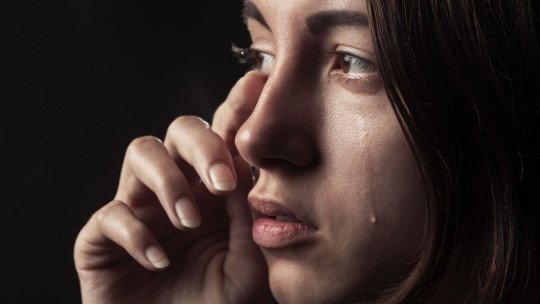In theory and in practice, no one is perfect. We all have imperfections, weaknesses and “blind spots” in our repertoire of virtues, and that is no problem. What is a problem, however, is what happens when our perception of these defects generates insecurities that keep us afraid and without wanting to leave a very restricted comfort zone.
Unfortunately, this insecurity with different facets is something that we unconsciously internalize if we become accustomed to participating in certain ways of interacting with others and with the environment around us.
These cracks in our self-esteem do not appear just because they do , but they depend on the experiences we go through and that we generate. All is not lost: since insecurities are learned, we can also unlearn them until they are insignificant and small enough so that they do not affect us too much. They will never completely go away, since our emotional memory can hardly be reset, but at the end of the day mental health has to do with how functional we are, not whether we are perfect.
Habits that intensify our insecurities
Below we will see several of the most frequent habits that fuel our insecurities and cause them to continue perpetuating over time.
1. Maintain dependency relationships
These types of human relationships tend to be significantly harmful during the time in which they take place, and are not only limited to the realm of couples and romantic love.
Normally, these links have a person who, among their strategies to keep the other in a state of dependence , uses different formulas to feed the latter’s insecurities. For example, ridiculing his achievements, making fun of his proposals, etc.
2. Expose yourself to highly stressful contexts
Frequently experiencing anxiety has very varied negative repercussions on our physical and mental health. Among these undesired consequences is regularly seeing how our efforts and our ability to concentrate on tasks are not enough to achieve the desired objectives, so we fail many times and make silly mistakes.
Of course, part of these insecurities is based on the objective fact that we show worse performance on many tasks , but that is not a consequence of who we are, but of the circumstances we are going through. Therefore, by stopping subjecting ourselves to that amount of stress, it is easier for our perception of ourselves to be more in line with reality and not lead us to pessimism.
3. Compare yourself to idealized people
This is one of the habits most related to insecurity. And since we live in the information society, it is increasingly common to compare ourselves with people who basically do not exist, since they are either very “filtered” representations of real users of a social network that only show the good and do not show what they perceive as their own defects, or are representations of fictitious people created from the work of marketing departments working from real material provided by celebrities (singers, models, etc.).
Therefore, it is very necessary to be aware of the existence of these filters to prevent our self-esteem and our self-concept from depending on comparisons with these mirages.
4. Avoid problems
There are those who, at the slightest sign that a stressful event may occur, do everything possible to avoid exposing themselves to it, even if facing that situation is clearly positive or necessary given the circumstances, even if it is to tempt fate and give ourselves the opportunity to May our situation improve. In these cases, those who have already become accustomed to this dynamic that generates insecurities, They rationalize their fear of leaving their comfort zone to justify their passivity : “I don’t need to make that call, I already know he’s going to reject me anyway,” for example.
Assuming this behavior as normal does nothing more than promote the tendency to maintain a low profile, oblivious to any type of ambition, and very exposed to fears based on the fear of not being good enough to achieve what we would like to achieve.
5. Base self-esteem on criticism
There are those who only find a way to reaffirm themselves criticizing or making fun of others. This not only hurts others; Furthermore, it makes self-esteem depend on these constant attacks. On the other hand, if the direction of these criticisms ever reverses, one is much more vulnerable, because that self-image based on moral superiority fades.
Build healthy self-esteem
As we have seen, self-esteem and our way of valuing ourselves It depends mainly on how we interact with our environment. Being clear about this is essential to not assume that insecurities arise from oneself in isolation, as if they were part of one’s essence.









